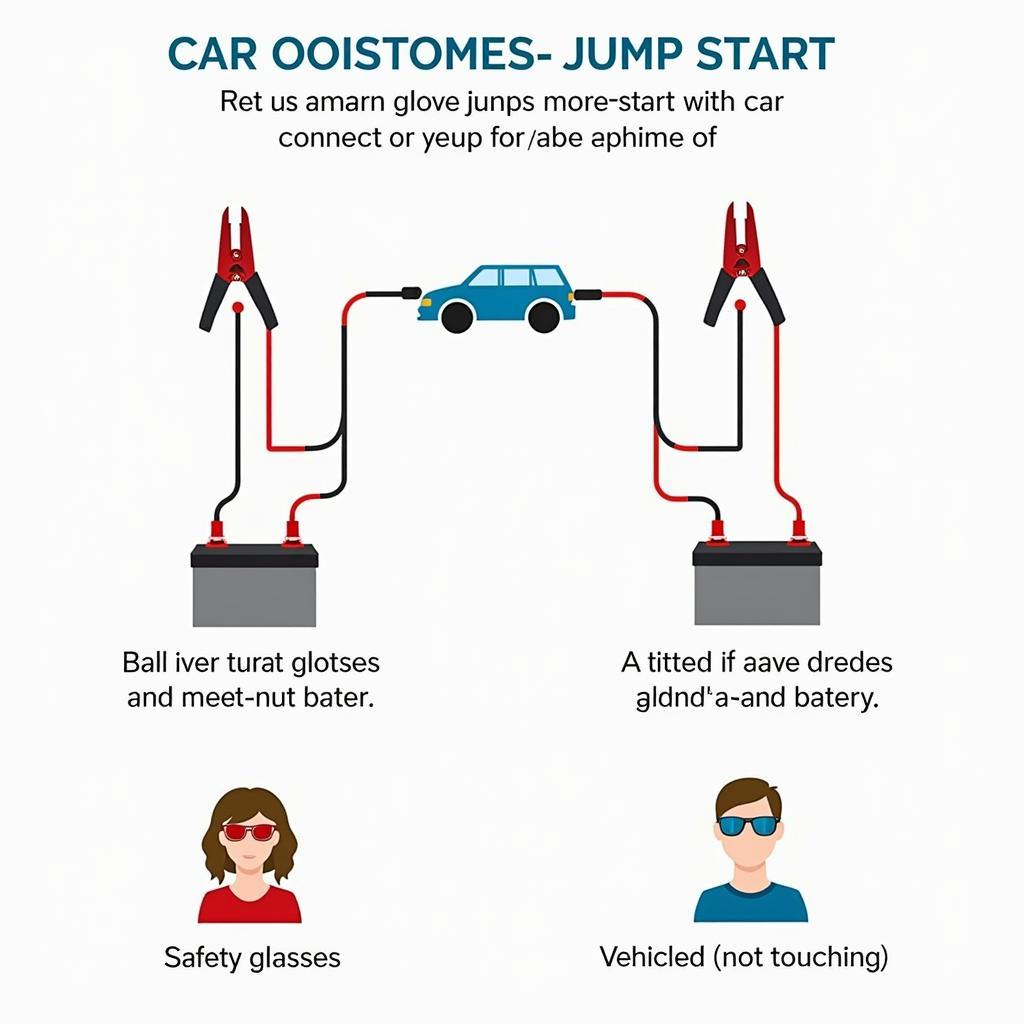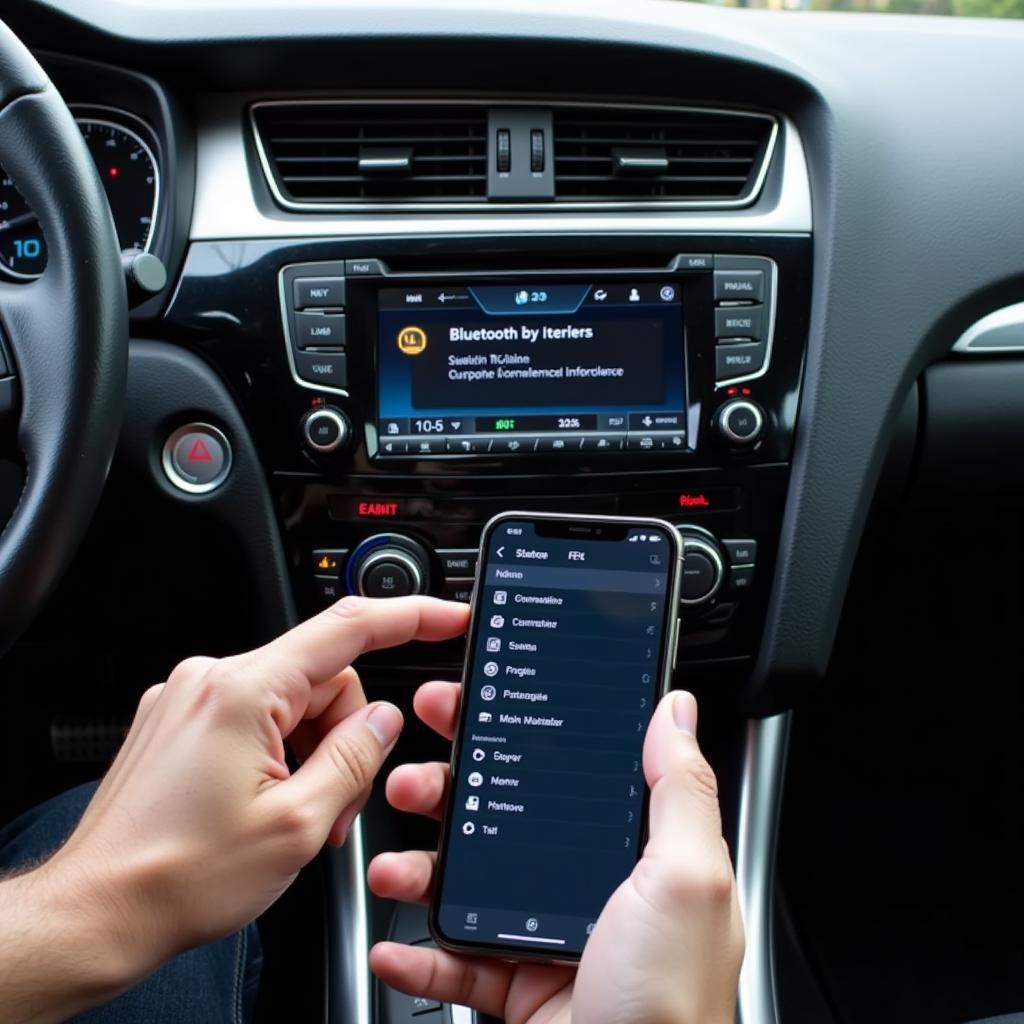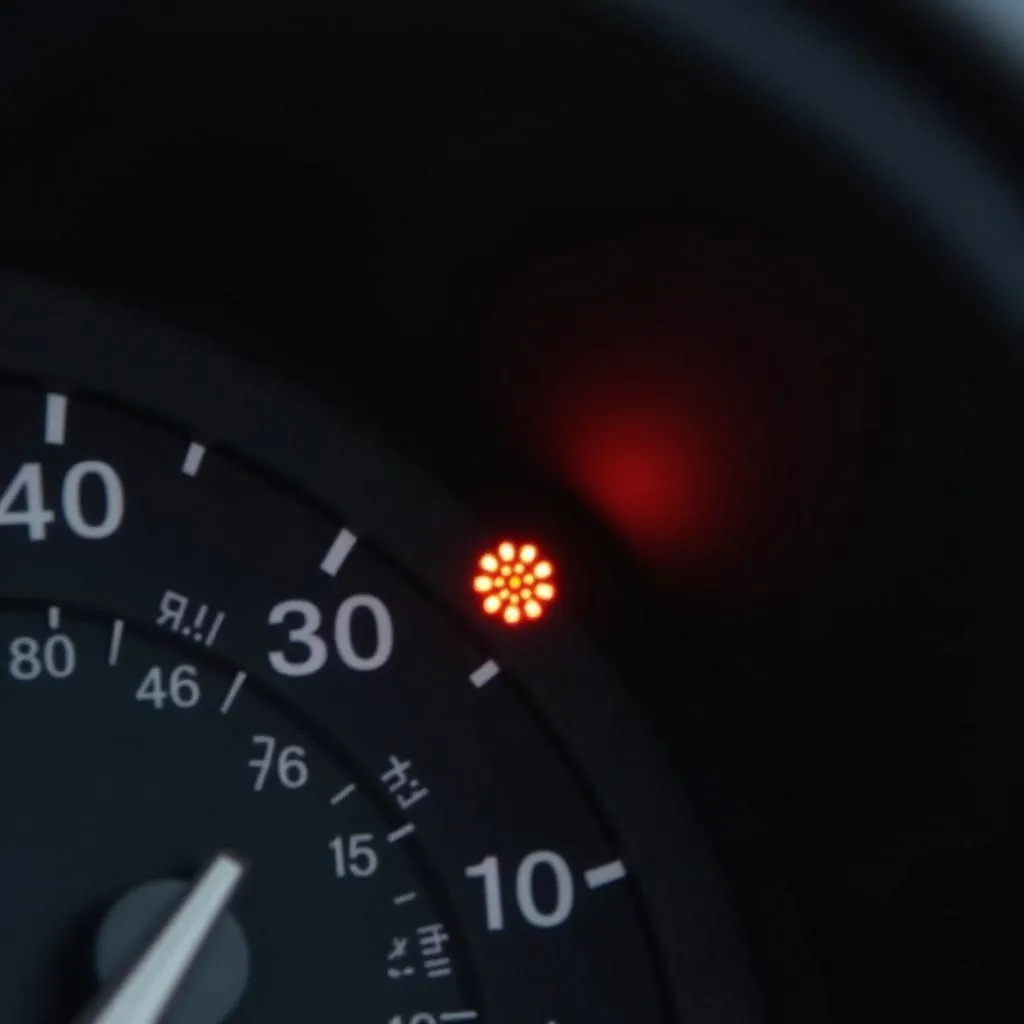Your car won’t start, and you suspect the battery. This is a common issue, and thankfully, often an easy fix. But before you jump to conclusions, it’s important to systematically diagnose the problem. This guide will walk you through the process of determining whether a dead battery is the culprit and how to address the situation.
Common Reasons Why Your Car Won’t Start
There are several reasons why your car might refuse to start, ranging from a simple dead battery to more complex mechanical or electrical issues. Identifying the root cause is crucial for an effective solution.
Dead Battery: The Usual Suspect
A dead battery is the most frequent reason for a no-start condition. This can be caused by leaving lights on, extreme temperatures, an old battery, or a faulty charging system. Symptoms of a dead battery include dim headlights, a slow cranking engine, or clicking sounds when you turn the key.
Faulty Starter Motor: The Engine’s Cranking Assistant
The starter motor is responsible for cranking the engine to life. If the starter is faulty, the engine won’t turn over even with a healthy battery. You’ll likely hear a single click or a rapid clicking sound when trying to start the car.
Ignition System Problems: The Spark of Life
The ignition system provides the spark needed to ignite the fuel in the engine. Problems with the ignition coil, spark plugs, or distributor can prevent the engine from starting. This might manifest as a no-start condition, rough idling, or engine misfires.
Fuel System Issues: No Fuel, No Go
If the engine isn’t getting fuel, it won’t start. This could be due to a clogged fuel filter, a malfunctioning fuel pump, or a faulty fuel injector. Symptoms might include a sputtering engine, difficulty accelerating, or a strong smell of gasoline.
Other Electrical Gremlins: Tracing the Circuits
Electrical issues, such as corroded connections, damaged wiring, or a blown fuse, can also prevent the car from starting. These problems can be tricky to diagnose and often require specialized tools and expertise.
Diagnosing a Dead Car Battery
If you suspect your car won’t start is it the battery, here’s how to check:
- Check the headlights: If they’re dim or don’t turn on at all, it’s a strong indicator of a dead battery.
- Listen for clicking sounds: Clicking noises when you turn the key suggest a low battery or a faulty starter.
- Test the battery voltage: Use a multimeter to measure the voltage across the battery terminals. A reading of 12.6 volts or higher indicates a healthy battery. A reading below 12.4 volts suggests a low charge, and below 11.8 volts signifies a dead battery.
“Regular battery maintenance, including cleaning the terminals and checking the electrolyte level, can significantly extend its lifespan,” advises John Smith, ASE Certified Master Technician at Smith Automotive.
 Jump Starting a Car
Jump Starting a Car
What To Do If Your Car Battery Is Dead
If you determine your car won’t start because the battery is dead, you have several options:
- Jump-start the car: Use jumper cables and another vehicle to provide a temporary boost to your battery.
- Charge the battery: Use a battery charger to replenish the battery’s charge. This takes several hours depending on the charger and battery condition.
- Replace the battery: If your battery is old or damaged, replacement is the best option.
“Investing in a high-quality battery and maintaining it properly will save you from the hassle of a no-start situation in the long run,” adds Jane Doe, Lead Electrical Systems Engineer at AutoTech Solutions.
Conclusion: Getting Your Car Back on the Road
If your car won’t start, it might be the battery. By following the steps outlined in this guide, you can quickly diagnose the issue and take the appropriate action. Remember, preventative maintenance and regular checks can help prevent future starting problems.
FAQ
- How long does a car battery last? Typically, car batteries last between three to five years.
- Can a car battery be recharged after it dies? Yes, in many cases, a dead car battery can be recharged.
- How can I prevent my car battery from dying? Avoid leaving lights or accessories on when the engine is off, and ensure regular battery maintenance.
- What are the signs of a bad starter? Clicking sounds, a grinding noise, or the engine not turning over are common signs of a bad starter.
- How much does a new car battery cost? The cost varies depending on the type and brand, but typically ranges from $50 to $200.
- Can I replace a car battery myself? Yes, with basic tools and some mechanical knowledge, you can replace a car battery yourself.
- What should I do if my car still won’t start after replacing the battery? If your car still won’t start, it might be another issue, such as a faulty starter or alternator. Seek professional help if needed.


